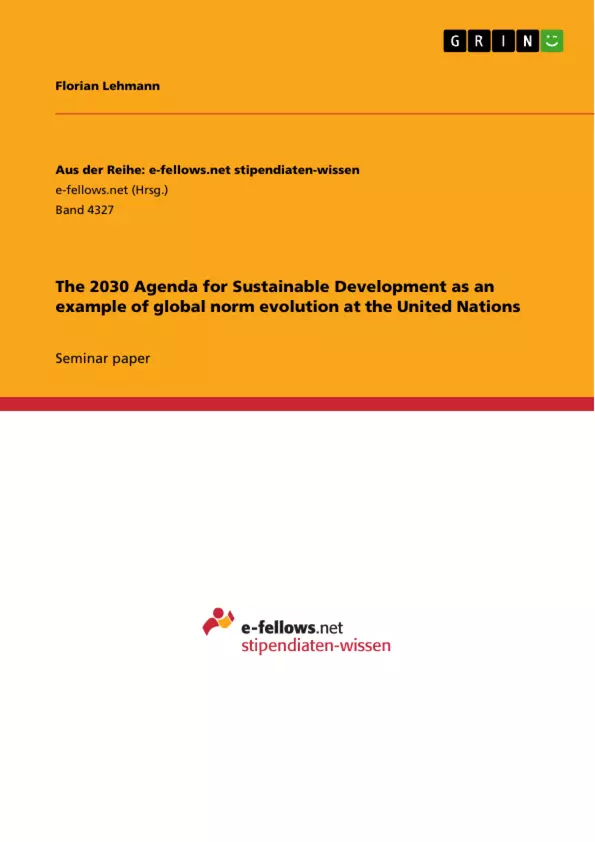The text explores the development of international law, particularly focusing on its evolution within the framework of the United Nations and its relevance to the 2030 Agenda for Sustainable Development. It addresses the ongoing debate about the need for reform within the UN Charter and the challenges associated with multilateral norm development.
The paper's central question revolves around the effectiveness of international law in the context of the 2030 Agenda. It seeks to analyze the achievements and existing complications in global norm development, emphasizing the comparison between the UN Charter's preamble and the 2030 Agenda to highlight the transformations undergone by international law.
Divided into sections, the text first discusses the evolution of international law and its implications for the 2030 Agenda, followed by an overview of the 2030 Agenda and its norm development. It then delves into the effectiveness of norm development within this agenda, examining successes and failures. Additionally, it touches upon the issue of compliance with non-binding laws and offers insights into potential future developments.
The conclusion summarizes the findings presented throughout the paper and revisits the initial research question regarding the effectiveness of international law within the context of the 2030 Agenda for Sustainable Development.
Inhaltsverzeichnis (Table of Contents)
- Introduction
- United Nations and norm development
- Norm development in the 2030 Agenda
- Effectiveness
- Success
- Failures
- Compliance
- Conclusory remarks
Zielsetzung und Themenschwerpunkte (Objectives and Key Themes)
This paper examines the effectiveness of international law development in the 2030 Agenda for Sustainable Development. It investigates how international law has evolved and changed, focusing on the shift from a focus on state actors to a broader engagement with "the people." The paper explores the successes and failures of norm development within the framework of the 2030 Agenda and discusses the question of compliance with non-binding law.
- Evolution of International Law
- Effectiveness of the 2030 Agenda
- Successes and Failures of Norm Development
- Compliance with Non-Binding Law
- The Role of the United Nations in International Lawmaking
Zusammenfassung der Kapitel (Chapter Summaries)
- Introduction: This chapter introduces the paper's central question: Has the evolution of international law been effective in the 2030 Agenda? It highlights the significance of this question in analyzing both the achievements and challenges of global norm development. The chapter also outlines the paper's structure and key themes.
- United Nations and Norm Development: This chapter discusses the historical evolution of the United Nations and its role in norm development. It compares the UN Charter's focus on state actors with the 2030 Agenda's emphasis on "the people," illustrating the transformation in international lawmaking. The chapter analyzes the differences in terminology and content between the two texts, emphasizing the shift toward a more policy-oriented approach.
- Norm Development in the 2030 Agenda: This chapter delves into the specifics of norm development within the 2030 Agenda. It explores the concept of effective norm development and examines its successes and failures in the context of the Agenda's goals. The chapter also examines the challenges of achieving compliance with non-binding law.
Schlüsselwörter (Keywords)
This paper focuses on the evolution of international law, norm development, the 2030 Agenda for Sustainable Development, the United Nations, state actors, civil society, non-binding law, compliance, successes, and failures.
- Quote paper
- Florian Lehmann (Author), 2022, The 2030 Agenda for Sustainable Development as an example of global norm evolution at the United Nations, Munich, GRIN Verlag, https://www.hausarbeiten.de/document/1430098


